Ever feel like you’re everyone’s rock, but inside you’re just crumbling under the weight? Yeah, I’ve been there waking up tired before the day even starts, ’cause last night you were up listening to a friend’s crisis again. Emotional fatigue sneaks up like that, this quiet burnout from constantly absorbing other people’s stuff while your own tank runs empty. It’s not just being worn out; it’s that deep, soul-level drain that makes everything feel heavier. In this article, we’ll break it down step by step: what emotional fatigue really looks like, the sneaky signs you might be missing, and the hidden roots tied to always being available.
We’ll map out why it hits so hard and how to spot it early, with real-life bits from my own mess-ups and wins. For more on handling those overwhelming feels, check out our piece on why your emotions feel too much it’s a game-changer for understanding the overload. And if you wanna dive deeper into the science, here’s a solid read from Psychology Today on emotional exhaustion. Oh, and stick around for our quick infographic checklist it’s like a mirror for your energy levels, helping you diagnose if you’re running on fumes without the guesswork.
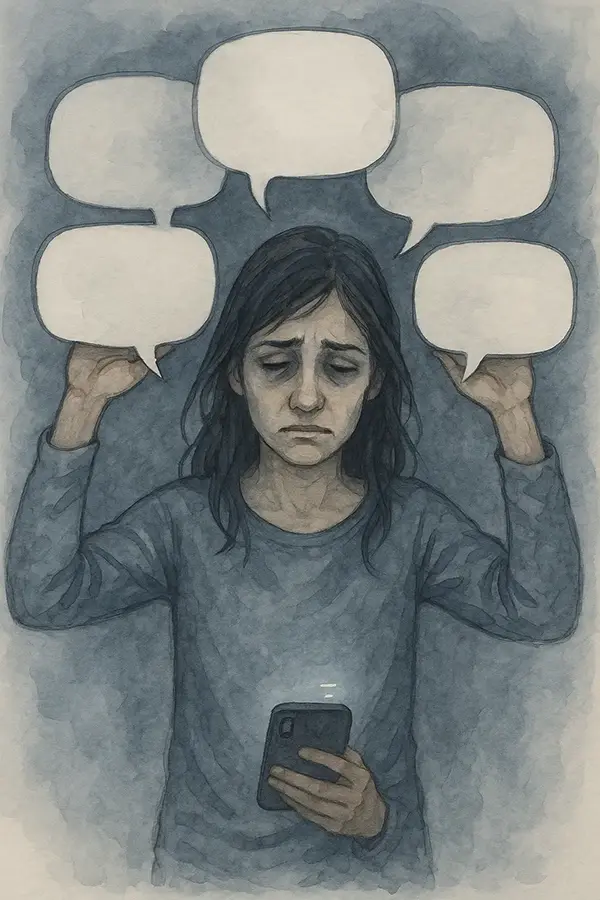
It’s kinda funny how we end up here, right? One day you’re the go-to listener, the next you’re wondering why coffee doesn’t fix the fog anymore. But hey, recognizing this is the first step to not feeling like a human sponge all the time. 😌
Introduction
Why Always Being the Go-To Person Feels So Exhausting
Man, being the one everyone turns to it’s flattering at first, isn’t it? Like, “Hey, they trust me!” But then it piles on. I remember this one week where my phone buzzed non-stop: sister venting about work, best friend needing advice on a breakup, even a coworker dumping their stress during lunch. By Friday, I was snappy over nothing, like the sound of rain annoyed me. That’s the thing about always being ‘on’ for others it drains your emotional battery without you noticing til it’s almost dead.
It’s not just the time; it’s the energy suck. You’re not only listening, you’re empathizing, problem-solving, holding space… all while pushing your own stuff aside. And if you’re someone who hates letting people down? Doubles the load. Over time, this constant availability turns into a low-key resentment, or worse, numbness where you can’t even feel your own needs. Think about giving yourself permission to unplug sometimes it’s not selfish, it’s survival. No wonder so many of us end up feeling hollow, like we’re giving from an empty cup.
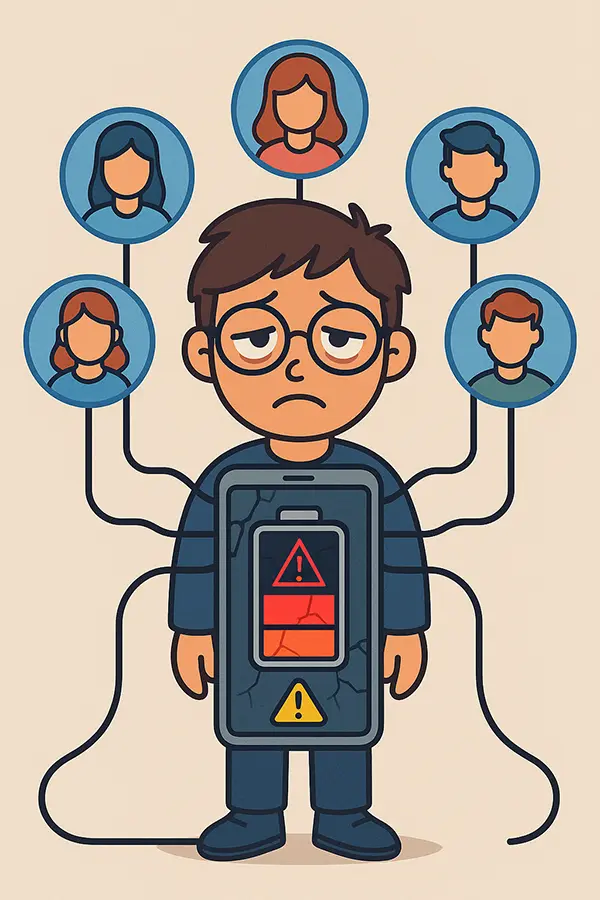
I’ve seen it in friends too one gal in my circle, always the mediator in family fights, ended up with migraines that no pill touched. Turns out, it was all that unspoken emotional labor building up. If this hits home, you’re not alone; it’s super common, especially for folks in caring roles or those wired for empathy. But the good news? Spotting why it’s exhausting is half the battle to reclaiming some peace.
What Is Emotional Fatigue, Really?
Okay, let’s get real about what we’re dealing with here. Emotional fatigue isn’t your standard “I need a nap” tired it’s that deeper, sneaky exhaustion that creeps in when your mind and heart have been working overtime on everyone else’s vibes. Picture it like carrying an invisible backpack full of other people’s worries; it weighs you down even when you’re sitting still.
I once thought I was just “stressed,” but nope it was this emotional overload making me zone out during conversations or dread social stuff. It’s tied to how our brains process empathy and stress hormones, leaving you feeling wrung out without a clear reason. And yeah, it can mess with sleep, focus, even your immune system if ignored too long.

Defining the Invisible Drain on Your Nervous System
So, emotional fatigue? It’s basically your nervous system saying “enough already” after too much emotional input. Think of your sympathetic nervous system the fight-or-flight one getting stuck in low-grade alert mode from constant caring. You’re absorbing micro-stresses: a friend’s subtle sigh, a partner’s off mood, even strangers’ energy in a crowd. Over time, this floods your system with cortisol, that stress hormone, leading to a wired-but-tired feeling.
From what I’ve read and felt, it’s like your emotional reserves get depleted without refill. Neuroscience backs this studies show chronic empathy without boundaries can mimic burnout symptoms, messing with brain areas for emotion regulation. I had a phase where I’d wake up anxious for no reason; turns out, it was leftover residue from yesterday’s “helping.” It’s invisible ’cause there’s no broken bone, but man, it hurts just the same.
And here’s a twist: for some in the LGBT+ community, this drain amps up with added layers like navigating identity stress or microaggressions while still being the supportive friend. It’s exhausting on another level, feeling like you gotta be “on” to prove your worth or fit in. If that’s you, know it’s valid, and small boundaries can make a huge differe nce.
How It Differs from Regular Tiredness
Regular tiredness? That’s the “long day, need sleep” kind physical, hits your body, fixed with rest or food. Emotional fatigue, though? It’s sneakier, lingers in your mind even after eight hours of shut-eye. You might crash on the couch but still feel that inner heaviness, like your soul’s jet-lagged.
Key difference: physical tiredness eases with a walk or nap, but emotional stuff sticks around, making you irritable or detached. I used to confuse them down a coffee for “energy,” but it just jittered my already frazzled nerves. Physically, you might ache or yawn; emotionally, it’s more like foggy brain, short fuse, or “why bother” vibes. One’s about muscles, the other’s about your emotional bandwidth getting maxed out. Emotional fatigue often hides behind “I’m fine,” but deep down, it’s screaming for a real reset.
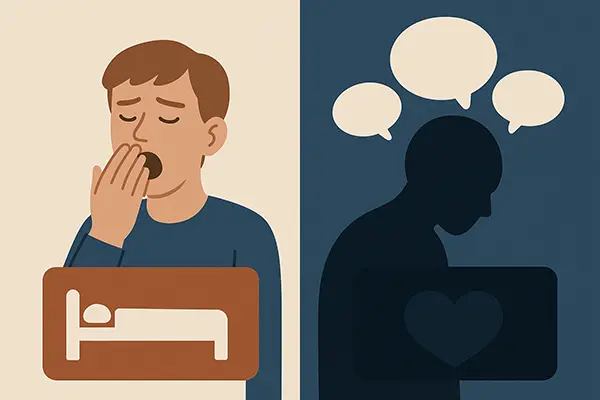
Signs You’re Dealing with Emotional Fatigue
Ever catch yourself staring at the wall, wondering why everything feels meh? That’s a classic sign. Emotional fatigue shows up in weird ways, not always obvious like a headache. It can mimic other stuff, so tuning in is key. From my experience, ignoring these led to bigger blowups like snapping at a loved one over spilled milk. Let’s unpack the red flags so you can catch ’em early.
Common Symptoms in Daily Life
In everyday stuff, emotional fatigue pops up as constant overwhelm, where even grocery shopping feels like a chore. You might get super irritable over tiny things, like traffic making you ragey. Or emotional numbness laughing at jokes but not really feeling it. Sleep gets wonky too; I tossed and turned, mind racing with others’ problems.
Other hits: decision fatigue, where choosing dinner is impossible, or withdrawing from friends ’cause peopling exhausts you. Headaches, tight chest, even appetite changes it’s your body whispering “slow down.” If you’re always the fixer, these symptoms amp up, leaving you resentful or guilty for needing space. 😔
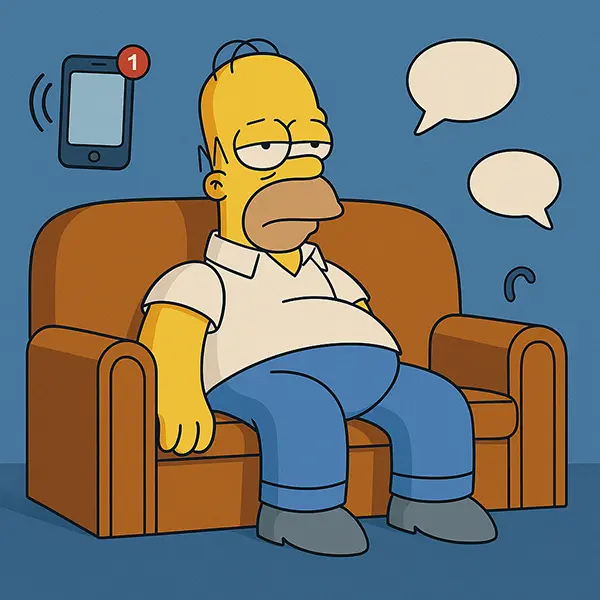
How to Tell If It’s Mental or Physical Fatigue
Mental fatigue? That’s brain fog, trouble concentrating, feeling mentally “full” after social stuff. Physical is more body-based sore muscles, heavy limbs. But emotional blends both, with a side of mood dips. Test it: if rest helps but the heaviness stays, it’s likely emotional.
I figured mine out by journaling if my tiredness tied to interactions, bingo. Mental might ease with a puzzle; emotional needs quiet reflection. If anxiety spikes with people-pleasing, that’s a clue too. Knowing the difference stops you from wrong fixes, like exercising when you need solitude.
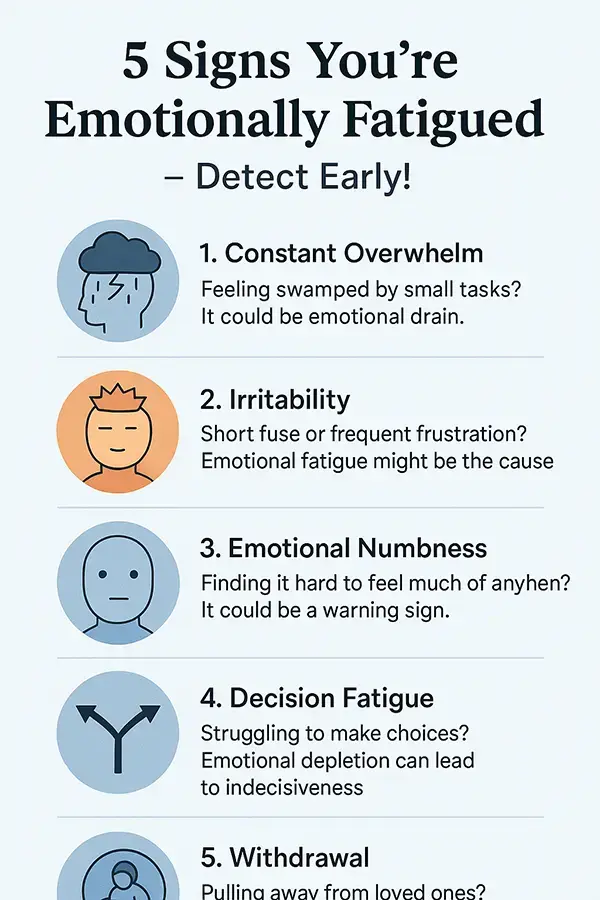
The Roots of Emotional Fatigue from Constant Availability
Diving into the why constant availability is like leaving your emotional door wide open, inviting drain without end. It stems from tech making us always reachable, plus societal vibes praising the “reliable” one. But roots go deeper, into habits and traits that keep us hooked.
Habits and Patterns That Lead to Depletion
Bad habits? Checking texts at midnight, saying yes to every favor, not setting “off” hours. These patterns create a cycle: help others, feel good short-term, but deplete long-term. I used to answer work emails on weekends felt productive, but left me ragged by Monday.
Patterns like avoiding conflict by over-accommodating amp it up. Or doomscrolling “support” groups, absorbing more energy. Breaking these means noticing track when you feel drained post-interaction. Simple swap: mute notifications after 8pm. It feels weird at first, but man, the relief…
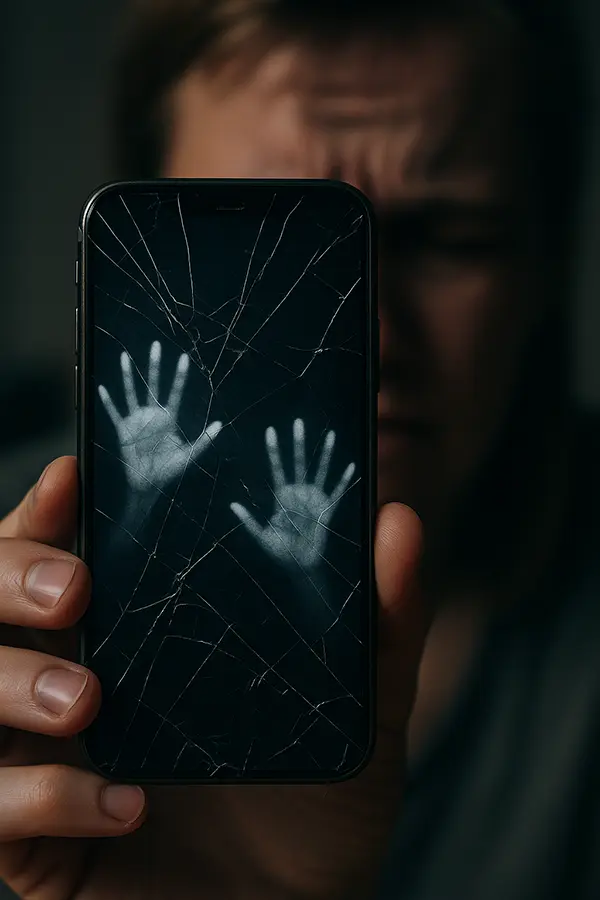
Why Anxiety and People-Pleasing Amplify It
Anxiety cranks the volume worrying you’ll let someone down keeps you hyper-available. People-pleasing? It’s the fuel, born from fear of rejection. I pleased to avoid “bad friend” feels, but it amplified fatigue, ’cause boundaries? What boundaries?
This duo creates a trap: anxiety says “help now,” pleasing says “always yes.” Result? Overload. For LGBT+ peeps, it might tie to past invalidation, making you overcompensate in relationships. Watch out for that inner voice saying “they’ll hate you if you say no” it’s a lie that drains you dry. Therapy helped me unpack this; turns out, real friends stick around even when you need space.
Personality Traits That Make You More Prone
Some traits wire us for this: high empathy means you feel others’ pain deeply, like HSP folks (highly sensitive people). Introverts recharge alone but often get pulled into extrovert roles. Perfectionists tie self-worth to helping, fearing failure if they don’t.
I’m an empath type great for connections, but prone to burnout without limits. Traits like agreeableness or conscientiousness are assets, but unbalanced, they lead to depletion. If you’re nurturing by nature, like many caregivers, it’s double. Recognizing this isn’t blame; it’s empowerment to protect your energy. 😊
Comparing Emotional Fatigue to Similar Issues
Ever mix up emotional fatigue with other stuff that leaves you wiped? I totally have like thinking it’s just burnout from work, but nope, sometimes it’s deeper or different. It’s tricky ’cause they overlap a ton, making it hard to pinpoint what’s really going on. We’ll break it down here, comparing symptoms and all, so you can sort it out without guessing. Oh, and if you’re dealing with that endless loop of thoughts keeping you up, it might tie into anxiety stuff more on that soon.
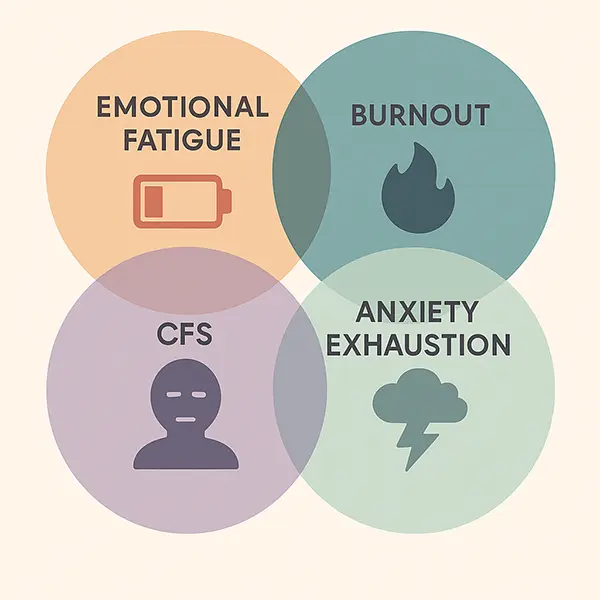
Kinda funny how our bodies and minds play these games, right? One day you’re fine, next you’re wondering if it’s all in your head. But nah, these are real deals, each with their own flavor of suck.
| 🟨 | Condition | Symptoms | Causes | Recovery Tips |
|---|---|---|---|---|
| Emotional Fatigue | Constant overwhelm, irritability, emotional numbness, foggy brain, snapping at small things | Chronic emotional labor, always being ‘on’ for others, suppressed feelings piling up | Set boundaries, journal emotions, short daily rests, talk to a friend or therapist | |
| Burnout | Deep exhaustion, cynicism, feeling ineffective, detachment from work/life | Prolonged unmanaged stress, overwork without breaks, lack of support | Take time off, reevaluate priorities, seek professional help like therapy, build hobbies | |
| Chronic Fatigue Syndrome (CFS) | Severe fatigue not eased by rest, post-exertional malaise, unrefreshing sleep, muscle pain | Unknown, possibly viral infections, immune issues, genetic factors | Pacing activities, symptom management (e.g., meds for pain), cognitive behavioral therapy, gradual exercise | |
| Anxiety-Related Exhaustion | Racing thoughts, physical tension, headaches, constant worry leading to drain | Anxiety disorders, overthinking threats, high cortisol from stress response | Anxiety techniques like mindfulness, meds if needed, therapy (CBT), reduce caffeine/triggers |
Emotional Fatigue vs. Burnout
Burnout’s like the big brother to emotional fatigue both leave you ragged, but burnout often hits from long-haul stuff like job grind, where you start hating what you used to love. Emotional fatigue? More about that daily emotional suck, like absorbing everyone’s moods without a filter. I remember burning out in my old office gig; it was cynicism creeping in, making me question everything. With emotional fatigue, it’s quicker hits after a week of friend dramas, leaving you numb but not necessarily cynical.
They share symptoms like tiredness and irritability, but burnout adds that “what’s the point” vibe, per Mayo Clinic. Emotional fatigue might ease with a quiet weekend; burnout needs bigger shifts, like job changes. If you’re in helping roles, watch for crossover emotional fatigue can snowball into burnout if ignored.
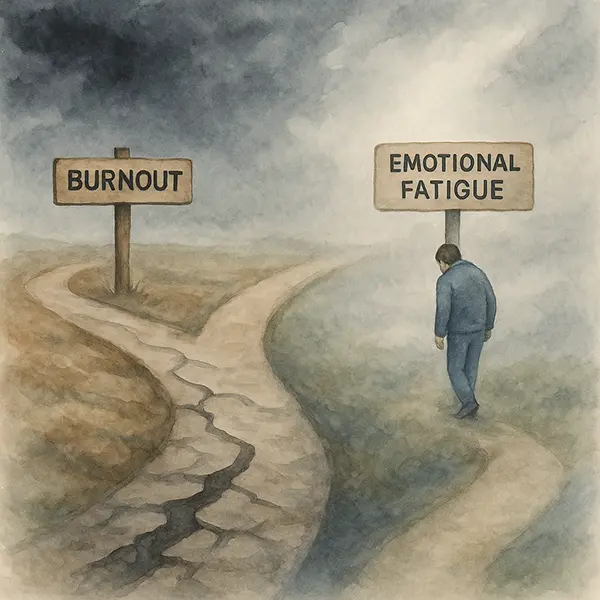
From a neuro angle, both spike cortisol, but burnout messes with dopamine more, leading to that motivation drop. Science says chronic stress rewires your brain’s reward system, making joy harder to find. Kinda explains why I felt so blah during my burnout phase hormones gone haywire.
Links to Related Conditions Like Mental Health Fatigue
Mental health fatigue ties in big time, especially when anxiety or depression amp up the drain. It’s like your brain’s on a treadmill, burning energy on worries instead of rest. For folks in the LGBT+ community, this can hit harder navigating identity stress or discrimination adds layers of mental load, making fatigue feel chronic. I’ve chatted with friends who felt that extra weight, like constant vigilance wearing them down. If overthinking’s your jam, that article on nighttime brain chaos dives deep it’s got tips on quieting the noise without meds.
For more science, check Harvard Health on energy zappers. And if it’s sounding like CFS, talk to a doc it’s not just “tired,” it’s systemic.
Stages of Recovering from Emotional Fatigue
Recovery ain’t linear it’s messy, with good days and slips. But breaking it into stages helps, like a roadmap when you’re lost. I went through this after a rough patch; started with admitting I was fried, then built walls (the good kind), and now it’s about keeping the balance. Hang in there; it gets better with practice.
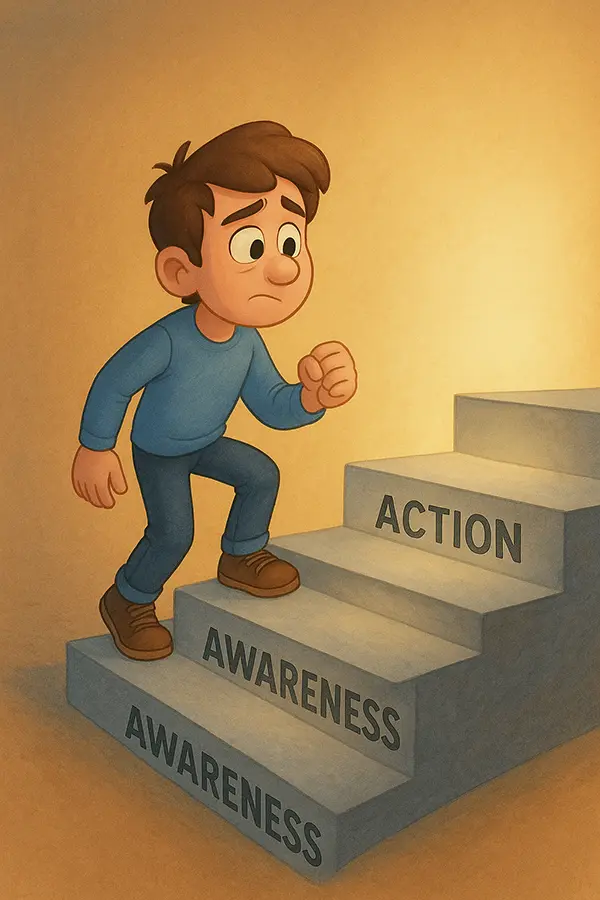
Awareness: Recognizing Your Limits
First off, you gotta see the patterns like noticing how after helping everyone, you’re the one left empty. I ignored mine til a headache hit during a call; that’s when I paused and thought, “Wait, this ain’t normal.” Awareness means tracking triggers: journal when you feel drained, spot the people or habits sucking energy. It’s eye-opening, almost scary at first.
For LGBT+ peeps, this might include recognizing how societal stuff adds to the load like masking emotions to fit in. Start small: ask yourself daily, “What’s my energy at?” Neuroscience backs it; self-awareness lights up prefrontal cortex, helping regulate stress hormones like cortisol. Simple, but powerful turned my chaos into clarity.
Action: Building New Boundaries
Once you know your limits, time to act set those boundaries without guilt. I started by muting group chats after 9pm; felt weird, but sleep improved bigtime. Try saying no to extra favors, or scheduling “me time” like it’s a meeting. It’s not selfish; it’s self-preservation.
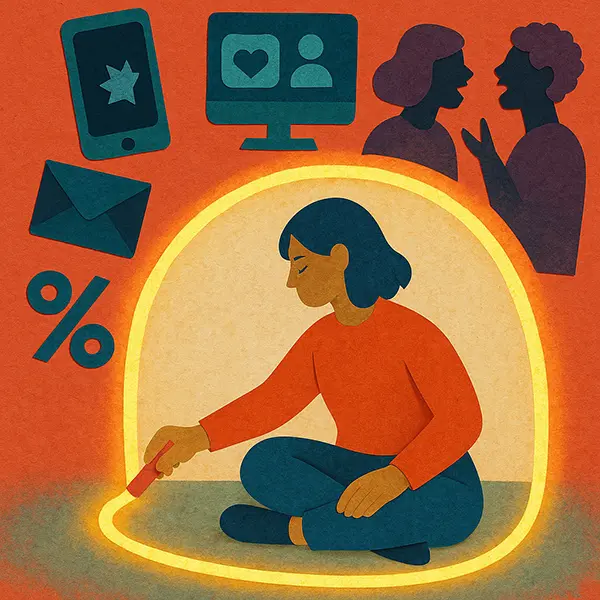
Tools? Apps for screen limits, or therapy for practice. Recovery here involves trial and error slip up? No biggie, learn from it. Hormonally, this calms adrenaline spikes, letting your nervous system chill.
Maintenance: Sustaining Balance Over Time
Keeping it up is the real test it’s not a one-and-done. I check in weekly now, adjusting as life changes. Build routines like weekly walks alone, or therapy check-ins. Surround with supportive folks who get boundaries; dump the drainers if needed.
Sustaining means flexibility some days you’re strong, others not. From psych view, it’s like habit formation; repeat enough, and it rewires your brain for resilience. I slipped once during holidays, but bounced back quicker. Long-term, aim for that sweet spot where giving doesn’t empty you.
Practical Tools to Protect Your Energy
Tools make it doable without ’em, it’s just talk. I’ve tested these; some worked instantly, others took time. Start small, build up. Your energy’s precious; guard it like a secret.
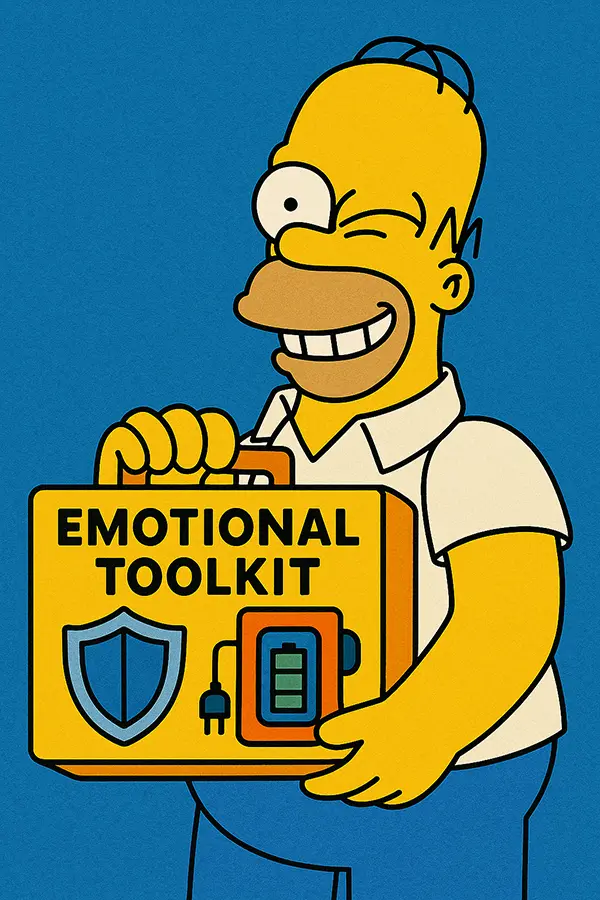
Setting Limits on Emotional Labor
Emotional labor’s that invisible work smiling through stress, holding space. Limit it by prioritizing: help when you can, but not always. I cut back on venting sessions; told friends, “Love ya, but need a raincheck.” It freed up headspace.
For deeper dives, see our post on emotional self-care basics it’s gold for this. And WebMD has solid burnout tips that overlap. Remember, saying no builds respect, not resentment.
Phrases to Use Without Feeling Selfish
Phrases help when guilt creeps in. Try: “I appreciate you sharing, but I’m at capacity right now.” Or, “Let’s chat tomorrow need to recharge.” I used “Sounds tough; I’ve got limited bandwidth today” with a coworker; worked like charm.
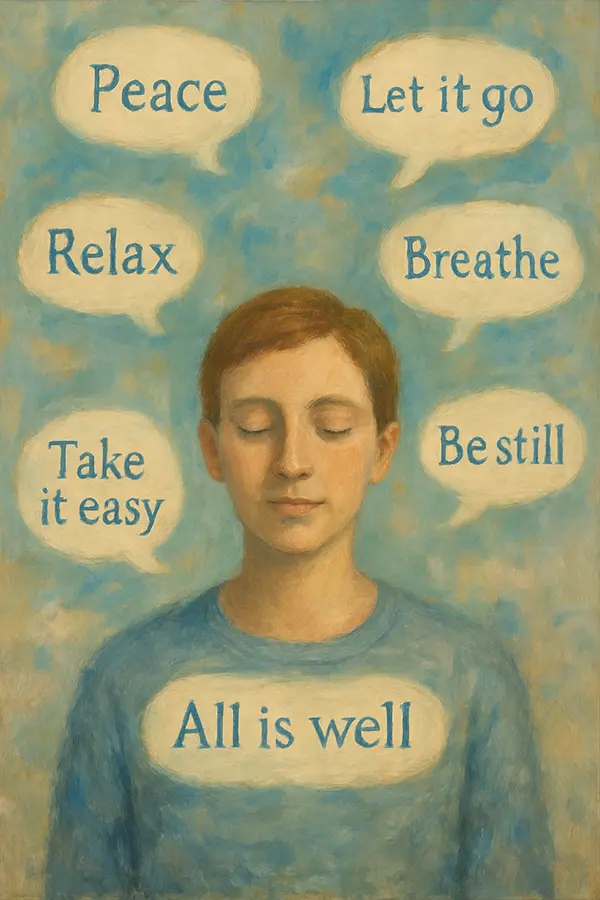
These soften the no, keeping connections. Practice in mirror if shy; it gets easier. 😏
Daily Exercises for Nervous System Recovery
Daily stuff resets your system like deep breaths or walks. I do a quick scan: notice tension, breathe it out. Helps release stored stress; science says it activates parasympathetic mode, dropping cortisol. Add yoga or tea time; whatever calms.
For anxiety ties, our overthinking guide has more. And Headspace’s got free trials for mindfulness. Consistency’s key make it habit, watch energy return.
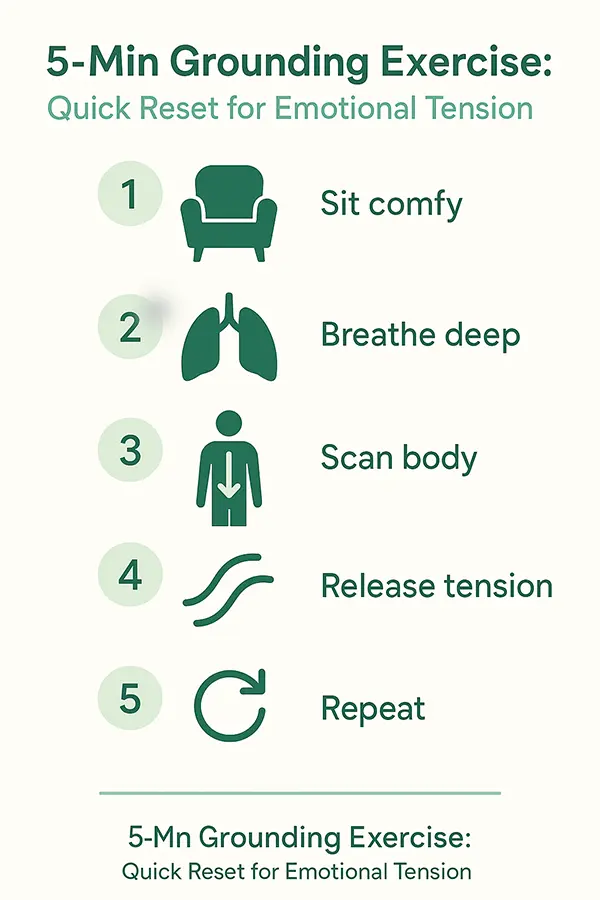
Real-Life Scenarios: When Emotional Fatigue Hits Hard
Life throws these curveballs where emotional fatigue just smacks you right in the face, doesn’t it? Like, you’re cruising along, thinking you’re handling everything, then bam everything feels too heavy. I’ve seen it in my own circle, and honestly, sharing these stories makes it less lonely. We’ll peek at a couple real situations, pulling from folks I’ve known or chatted with, to show how it creeps in and what flipping the script looks like. For more on spotting those deep feels that lead to this, check our piece on why emotions can feel overwhelming it’s eye-opening stuff.
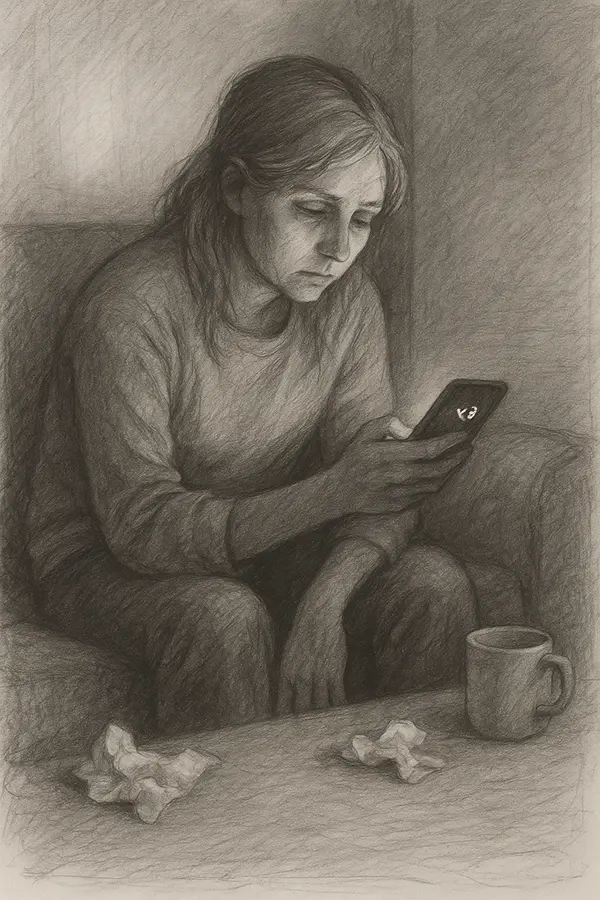
One buddy of mine, let’s call her Sara, was the queen of listening sessions. She’d drop everything for anyone’s vent, but over time, it left her foggy and snappy. Sound familiar? These scenarios aren’t rare; they’re everyday traps that amp up the drain if you’re not careful.
Case Study: The Always-Listening Friend
Picture this: you’re the friend everyone hits up for advice, late-night talks, the whole shebang. My pal Alex was that guy work buddies, old school friends, even randoms from online groups leaned on him. He’d listen for hours, empathizing so deep he’d carry their worries home. At first, it felt good, like he was helping, but then the signs hit: headaches that wouldn’t quit, zoning out mid-convo, and this weird numbness where joy felt fake. 😞
Alex told me once, after a marathon call with his sister about her job woes, he just stared at the wall for an hour, brain fried. It’s classic your nervous system gets overloaded from constant emotional input, spiking cortisol and leaving you wired yet wiped. From a psych view, it’s like your empathy circuits short out without downtime. And for LGBT+ folks like Alex, who navigated coming-out stresses on top, it doubled the load, feeling like he had to be the “strong one” to prove something. If you’re nodding, know it’s not weakness; it’s just human limits showing up.
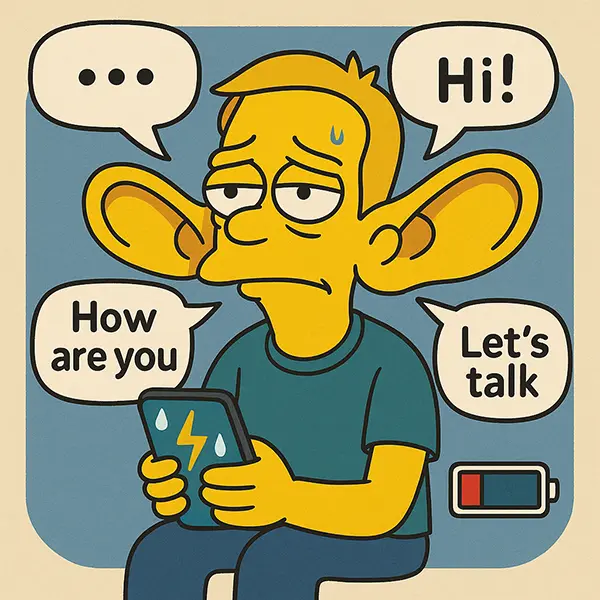
How They Reclaimed Balance
So how’d Alex turn it around? Started small set “listening hours” like office time, told folks “Hey, love chatting, but after 8pm I’m off-duty.” He journaled too, dumping his own feels instead of bottling ’em. Took weeks, but the fog lifted; he even started therapy to unpack why he over-gave. Now he’s got energy for his own hobbies, like hiking without that mental hangover.
It’s not rocket science, but it works neuroscience says rebuilding boundaries calms the amygdala, that fear center, reducing stress hormones over time. If you’re in a similar spot, try one change this week; might surprise ya how much lighter you feel.
Scenario: Family Expectations Draining Your Reserves
Family can’t live with ’em, can’t… well, you know. Take my aunt, always the glue holding holidays together, cooking, mediating fights, absorbing everyone’s drama. She’d smile through it, but come evening, she’d crash hard, body aching like she’d run a marathon. That depletion? Straight from unspoken expectations: “You’re the reliable one, so handle it.”
For her, it showed as chronic tiredness, short temper with kids, even skipping meals ’cause who has time? And in families with cultural pressures, like “family first always,” it amps up guilt for pulling back. I’ve seen LGBT+ relatives deal with extra layers hiding parts of themselves while supporting others, leading to deeper fatigue. It’s exhausting, feeling like your reserves are tapped dry by blood ties.
But here’s the flip: she started delegating, like “You handle dessert this time,” and carved solo walks. Balance returned, relationships even improved ’cause resentment faded. Simple, right? Yet powerful.
Checklist for Preventing and Managing Emotional Fatigue
Sometimes you need a quick gut-check to stay ahead of the drain. This checklist’s like your personal energy guard split into prevention to stop it building, improvement to tweak when it’s creeping, and tracking to celebrate wins. Print it or screenshot; I keep mine on my phone for rough days.
| 🟨 | Category | Items |
|---|---|---|
| Prevention | – Daily energy audit: Rate your vibe 1-10 morning and night, note drainers. – Set phone do-not-disturb after hours to block random vents. – Hydrate and snack low blood sugar amps emotional stuff. – Quick breath breaks: 4-7-8 inhale-hold-exhale when feels rise. | |
| Improvement | – Weekly boundary check: Review yes/no’s from the week, adjust one. – Delegate one task: Ask for help on something small. – Mindful unplug: 30 mins no screens, just you. – Talk it out: Share with a neutral friend, not the drainers. | |
| Progress Tracking | – Journal wins: Note one boundary that worked each day. – Track symptoms: Log headaches or irritability, see patterns drop. – Reward yourself: Treat for a drain-free week, like a fave show. – Monthly review: Compare energy levels, celebrate improvements. |
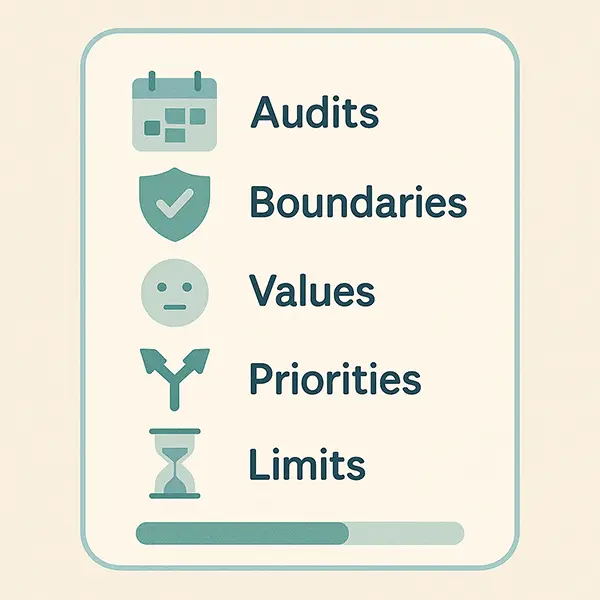
Using this helped me catch slips early; like, if my audit’s low three days running, I know to pull back. Give it a whirl it’s low-effort, high-reward. Start with just the prevention bits if it’s overwhelming.
Warning Signs It’s Time to Seek Help
Okay, let’s get serious emotional fatigue’s manageable solo sometimes, but when it digs in deep, pros can make all the difference. I’ve been there, thinking “I got this,” til it wasn’t. Watch for these flags; they’re your cue to reach out, no shame.

When Fatigue Becomes Chronic
Chronic means it’s sticking around, not just a bad week. If rest doesn’t refresh you, or you’re always on edge even alone, that’s it. My experience? Woke up tired daily, motivation tanked, small joys gone. It’s like your system’s stuck in overdrive, cortisol chronic from unchecked labor. Studies show prolonged emotional strain rewires stress responses, making recovery harder without help.
For LGBT+ peeps, if identity-related stress layers on, it can turn chronic quicker feeling unseen while supporting others. Don’t wait; therapy or a doc check can shift it.
Red Flags Like Persistent PEM-Like Symptoms
PEM? Post-exertional malaise, that crash after minimal effort, borrowed from chronic fatigue lingo but fits here. If a chat leaves you bed-bound, or headaches persist, flag it. Other reds: numbness that scares you, anxiety spikes, or physical stuff like unexplained aches.
I ignored mine til a panic attack hit scary wake-up. Red flags signal deeper issues, maybe burnout crossover or hormone imbalance. Head to a therapist or GP; sites like APA’s caregiver resources have starters. Better safe than sorry, yeah?
What Research Says About Emotional Fatigue
Diving into the science makes it less mysterious, right? Research paints a clear pic: this isn’t “just tired,” it’s real strain on your body and brain from emotional work. We’ll hit key studies and stats, pulling from solid sources to back it up.
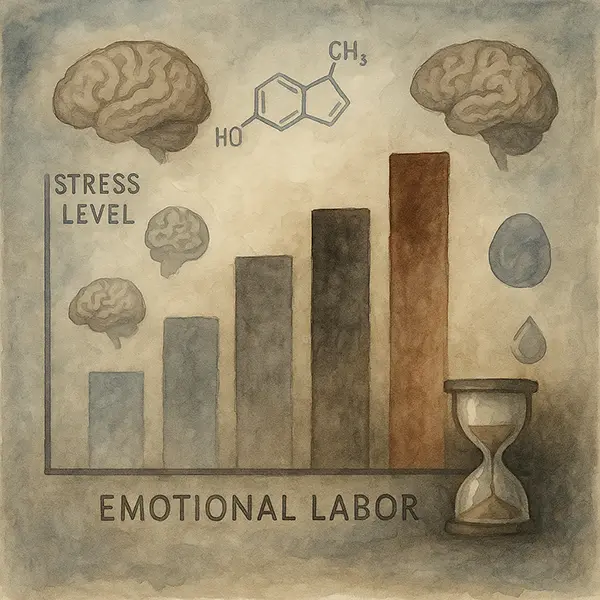
Studies on Nervous System Strain from Emotional Labor
Loads of studies link emotional labor like faking smiles or suppressing feels to nervous system wear. One on insomnia in laborers found it messes with autonomic regulation, leading to heart rate wonkiness and burnout. Another review tied suppressing emotions to resource drain, spiking stress hormones like cortisol and adrenaline.
From neuro side, it’s sympathetic overdrive your fight-flight system stays on, exhausting parasympathetic rest mode. A heart study even showed oxytocin and cortisol shifts in laborers, linking to long-term damage. Eye-opener: it’s not mental only; it hits physical hard.
Statistics on Caretaker Depletion in Relationships
Caretakers get hit bad APA says 66.6% of unpaid ones report mental health woes like stress or depression. Another stat: 40-70% have depression symptoms, half meeting major criteria. In relationships, caregiver burden leads to strain, with disabled carers feeling lower satisfaction.
🟨 Key Stats on Caretaker Depletion:
- 66.6% of caregivers report adverse mental health (APA).
- 40-70% experience depression symptoms.
- High stress correlates with poor sleep (avg score 12.44 on PSQI).
[Simple bar chart: Bars for depression (50%), stress (66%), sleep issues (high), in blues.]
These numbers? Sobering, but they validate you’re not alone, and help’s out there.
FAQ: Common Questions About Emotional Fatigue
Got questions swirling? Let’s tackle the biggies straight talk, no fluff. These come from chats I’ve had, and they’re super common.
Guilt’s a beast, huh? It stems from conditioning like society praising givers til they break. But pulling back ain’t selfish; it’s self-care. Think: empty cup can’t pour. Start small, remind yourself helping from depletion hurts everyone. Over time, guilt fades as energy returns. No, it’s not selfish it’s sustainable compassion.
Keep it simple: “It’s like my emotional battery’s low from absorbing stuff; need recharge time.” Use analogies they click. Avoid blame; focus on “I feel drained when…” Most get it if you’re honest. If not, that’s their issue.
Sneaky ones: constant phone checks, saying yes auto-pilot, skipping alone time. Doomscrolling vents online? Big drainer. Track a day you’ll spot ’em. Swap with boundaries; like mute groups.
Nah, varies wild. Some get headaches, others numb out. HSPs feel it deeper, while extroverts might push til crash. Gender plays too women often report higher from labor. Your version’s valid; no comparing.
If worry amps drain, or rest doesn’t help but calms anxiety does, likely linked. Symptoms overlap: racing thoughts, tension. Journal triggers if people-pleasing spikes both, bingo. Therapy sorts it.
Key: selective empathy. Help when full, set limits otherwise. Practice “compassion with boundaries” listen, but don’t absorb. Daily self-checks help. It’s possible; just practice.
Skip “Just relax” or “You’re overthinking.” It’s dismissive. Instead, “How can I support?” Avoid advice unless asked sometimes they just need space. 😊
Resources and Helpful Links
Wrapping up, here’s ammo to dive deeper books, tools, sites that’ve helped me and others build those walls without walls.

Books and Tools for Building Emotional Boundaries
Grab “Boundaries” by Henry Cloud and John Townsend classic for saying no guilt-free. Or “Set Boundaries, Find Peace” by Nedra Glover Tawwab; practical af for reclaiming you. Tools? Apps like Calm for grounding, or journals with prompts. Our mental self-care guide ties in nicely.
Trusted Sites for Further Reading
Hit HelpGuide.org for evidence-based tips on exhaustion. Verywell Mind has solid articles too. For burnout crossover, APA’s caregiver page. And our knowing yourself post key for prevention.
In the end, reclaiming your energy’s a journey, not a sprint. Start today set one boundary, feel the shift. You’ve got this; your peace matters. Ready to dive deeper? Check our site for more, or share your story below. Take care out there. 😌
✨ Last updated on 13.09.2025
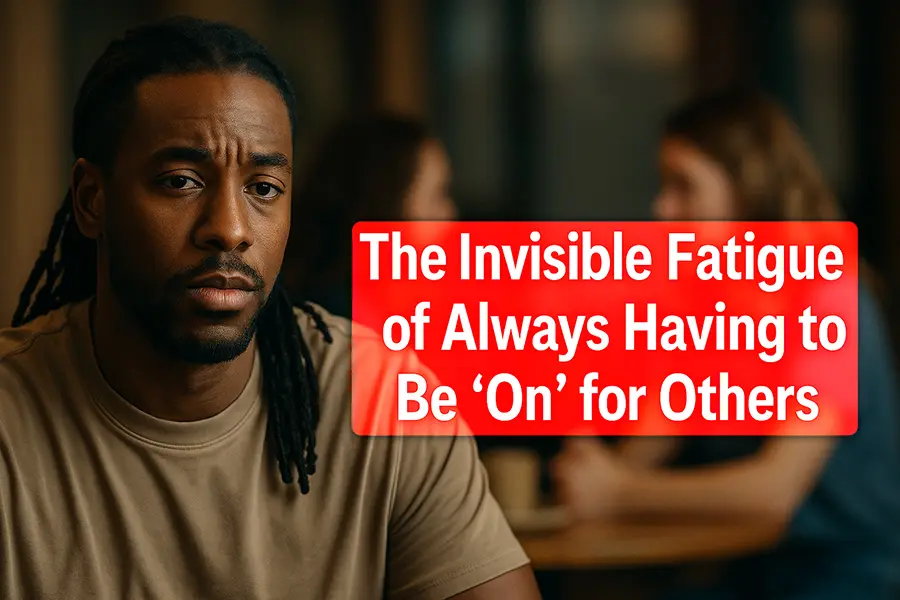




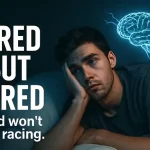





Leave a Reply